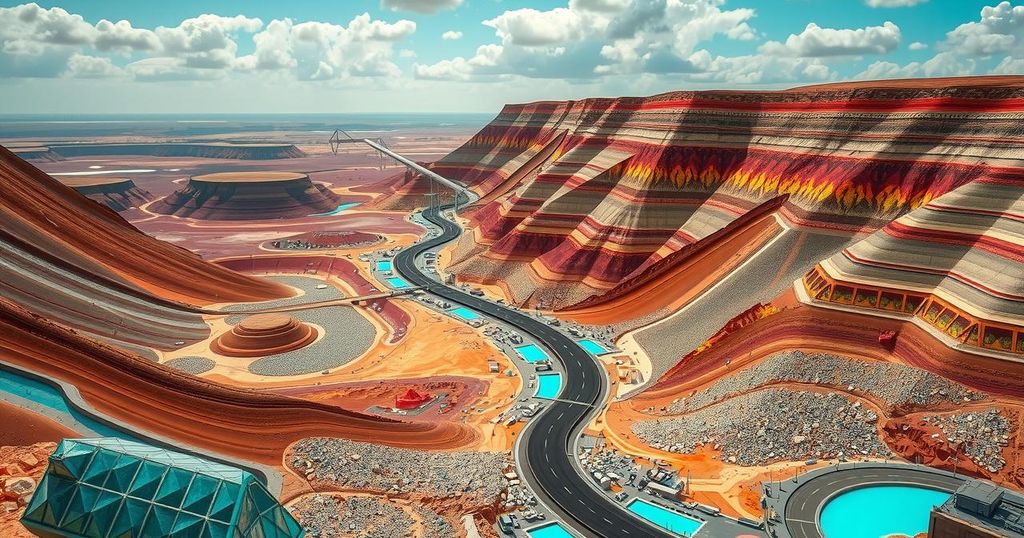US President Trump is exploring rare earth mineral deals in the Democratic Republic of the Congo after Ukraine negotiations faltered. The DRC, rich in essential minerals like cobalt, faces conflict from the M23 rebel group supported by Rwanda. China’s dominance in cobalt extraction raises concerns for US economic interests. Amid military challenges and humanitarian crises, the DRC’s vast mineral wealth presents significant geopolitical implications.
US President Donald Trump is looking to negotiate a deal with the Democratic Republic of the Congo (DRC) regarding rare earth minerals after discussions with Ukraine stalled. The DRC, plagued by ongoing conflict with the rebel group M23, harbors significant mineral deposits essential for electric vehicle production and various high-tech applications, heightening potential US interests in the region.
The M23 rebels have gained ground in eastern DRC, overtaking Goma and Bukavu, two vital locations within the mineral-rich North Kivu Province. According to Yinka Adegoke from Semafor, this area is rich in valuable minerals like coltan and cobalt, critical for technology products, particularly in the burgeoning electric vehicle market.
The DRC mines are essential for advanced technologies, yet securing a beneficial deal for the US remains paramount. A spokesperson highlighted that the DRC holds a significant share of global critical minerals. Adegoke noted that the US aims for a transactional relationship, seeking mutual benefits in any partnership established within the DRC.
In the context of cobalt extraction, China currently dominates the DRC’s mineral sector, controlling approximately 80 percent of the cobalt production. The US has remained vigilant about China’s expanding influence, having invested significantly in sub-Saharan Africa since the early 2000s. Any effort to broker peace would also serve to gain access to the DRC’s mineral wealth, which is imperative in maintaining global economic competitiveness.
Support for the M23 group has been allegedly provided by Rwanda, although Rwanda denies any such connections. Analysts suggest that the military strength of M23 hinges on Rwandan support, a claim backed by geopolitical assessments. Despite their numerical disadvantage, the M23 has made considerable territorial gains, leading to severe humanitarian consequences, including thousands dead and tens of thousands displaced.
Corruption within the DRC’s military further undermines its effectiveness in managing conflicts like this. The Congolese soldiers face inadequate pay and lack basic training, leaving them unable to defend their national interests effectively. The UN peacekeeping mission MONUSCO, along with forces from multiple countries, has struggled against rebel advancements, contributing to the overall instability of the region.
As multinational peacekeeping efforts face increases in challenges and troop withdrawals, the DRC’s instability poses further threats to its mineral wealth. The struggle for control over these valuable resources continues to benefit neither the Congolese populace nor international peace efforts, suggesting that the DRC’s rich geology has not translated into economic fortune for its citizens.
The Democratic Republic of the Congo remains a focal point for rare earth mineral negotiations involving the US, especially in light of its mineral richness and ongoing conflicts with the M23 rebel group. Trump’s interest highlights the geopolitical battle for control over essential resources, primarily cobalt, against the backdrop of China’s dominance in the region. However, the peace and stability needed for effective mining operations remains uncertain amid ongoing rebel activities and inefficient military interventions.
Original Source: www.abc.net.au






